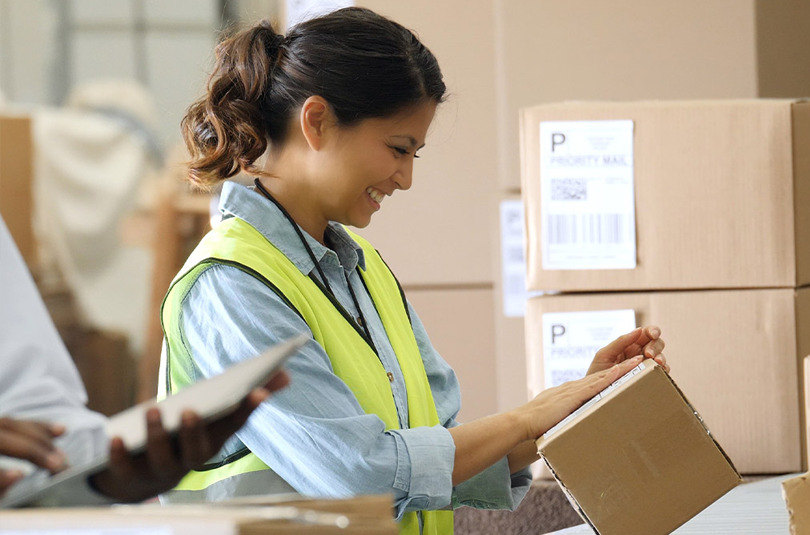What exactly is sustainability in eCommerce? Some might tell you it’s an ability to make a profit and stay in business – technically this is also true but, today we are referring to a businesses ethical practices. At the most basic level, it refers to the balance between what humans use of the earth and how they replenish it. Most businesses now carry a responsibility in some shape or form to carry out sustainable practices (recycling waste properly, conserving energy, and limiting their carbon footprint). If your company is not already required to monitor its environmental or social impact, it’s likely that it will soon.
So, with that said, what can you do to maximise environmental efforts while also taking advantage of what the messaging associated with such a move can do for your reputation?

Why businesses should consider sustainable efforts.
Consumers are more conscious than ever about how their shopping habits affect the world at large. As Coronavirus readjusts most people’s moral compass, consumers are choosing to invest their spending into more sustainable products and focusing their attention on brands dedicated to social issues and environmental efforts in all aspects of their business.
UK online retail spend is expected to reach £75bn by 2024 and Irish eCommerce spending is expected to reach €3.8 billion by the same year. With that in mind, the opportunity for those in the eCommerce sector to continue making massive profits is evident. However, those who adhere to their social and environmental duties seek to reap the benefits.
According to a recent study, Gen Z consumers are 1.5 times more likely to refer to a brand on social media based on its values, 68% of Gen Zers expect brands to contribute to society, and 87% of consumers will buy from a brand with a social or environmental cause. Significant statistics given that Generation Z commands 40% of all consumer shopping. Consumers are taking note of eCommerce businesses that ship their products with excessive packaging and 83% of consumers expect the packaging that is used to be recyclable.
Making strides in sustainability is not restricted solely to packaging and waste. It’s easy to forget about the environmental impact of increased cargo planes, trains, and trucks.
Vox has discussed Amazon’s minimum spend for free shipping – shoppers are required to bulk up their orders in order to avail of the free delivery. If one-day shipping incentivises more purchases, it’s likely that more fuel will be expensed to power more vehicles on the road. Large orders may also be split to speed up gratification – again, increasing the number of deliveries on the road on a daily basis.
So how can eCommerce retailers manage their sustainability responsibilities?

Ways of making your eCommerce more sustainable.
1. Reduce packaging waste
Make arrangements to switch to eco-friendly packaging options as soon as possible. Source recycled boxes and inflatable packaging (this reduces the amount of packaging needed within the box itself.) Recycling cardboard takes only 75% of the energy required to make new cardboard, so try looking into packaging providers such as Camvec.com or progresspackaging.co.uk. You should also bundle goods into one box instead of shipping in multiple boxes or bags and email receipts instead of using paper slips.
2. Reducing your carbon footprint
This starts with having very clear product information on your website with good context (measurements etc.). This way, customers know exactly what they are getting and the chances of a return being made are reduced. Ensure you have a varied offering in shipping options, emphasise the rewards for longer wait times (ie. that they are cheaper). It’s also beneficial to have your reasoning behind this displayed on the check out as customers respect environmental responsibility.
3. Update your brand ethos
Keeping your audience informed of your ethical responsibilities will increase your relatability and humanity and will justify added costs to your consumers in a positive manner. Consumers prefer to spend their money on brands that display pro-social messages, apply sustainable manufacturing practices and exercise ethical business standards. So be sure to work your care-taking into your brand ethos.
- Inform your consumers of what can be recycled from their delivery and what parts of the delivery are made from recycled products.
- Utilise your eCommerce Store to move unwanted in-store merchandise and offer them as part of your sales promotions.
- Work sustainability into your mission statement and pepper it throughout your content – If you over-do it with self-praise, consumers may begin to feel isolated if you present yourself as a paragon of virtue.
Conclusion
The conversation around sustainability is set to increase as years move on and ethical values will continue to become more of a priority for consumers. Gestures on your businesses’ behalf don’t have to be large and by no means should you run yourself into the ground trying to become more sustainable. However, it might make a positive impact on your business to educate your teams, educate your consumers, and take small steps to make sustainability a part of your business.
More about Scurri

Case Studies
See examples of how we have helped leading retailers drive efficiencies, growth and profit
